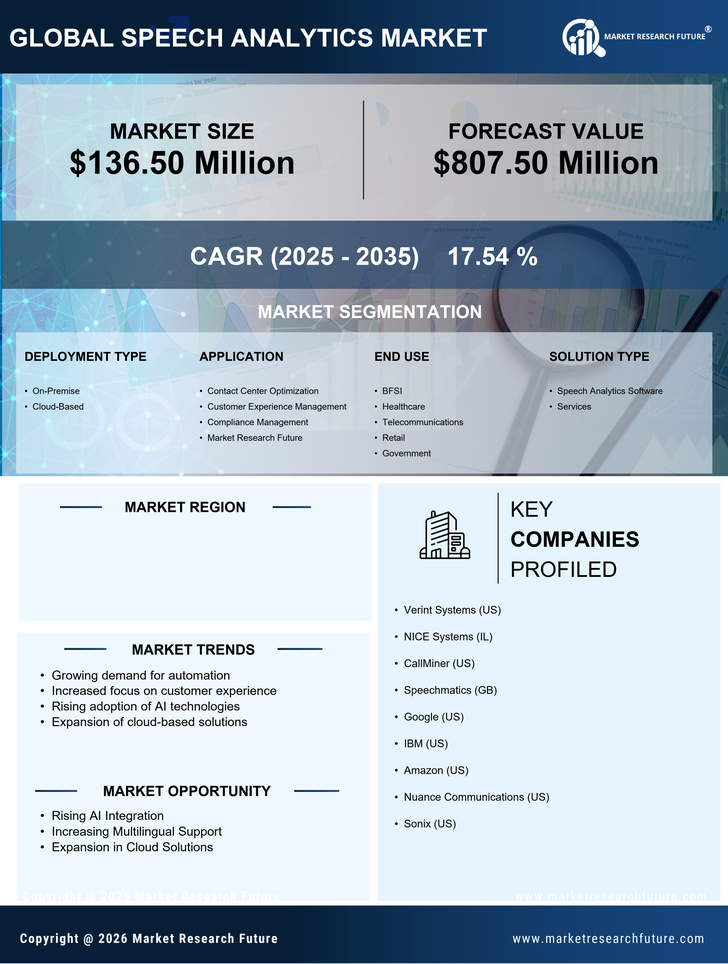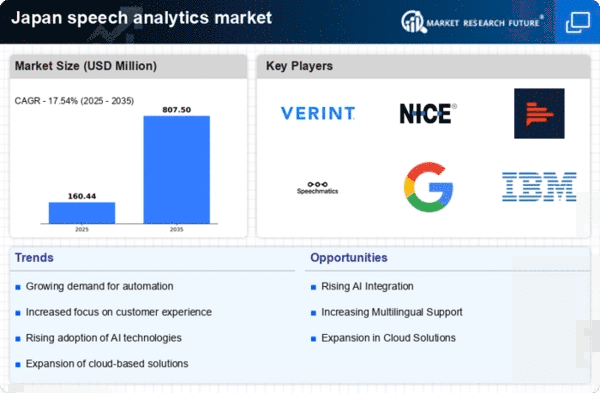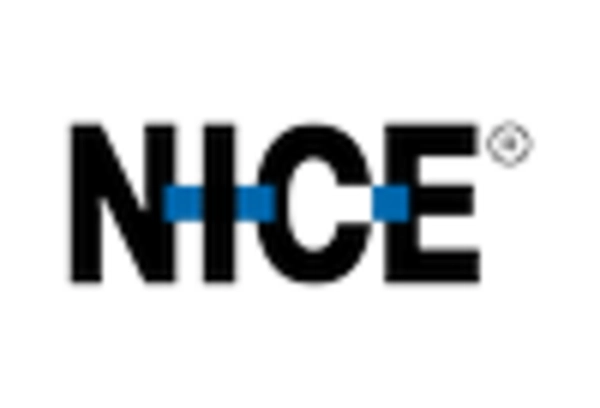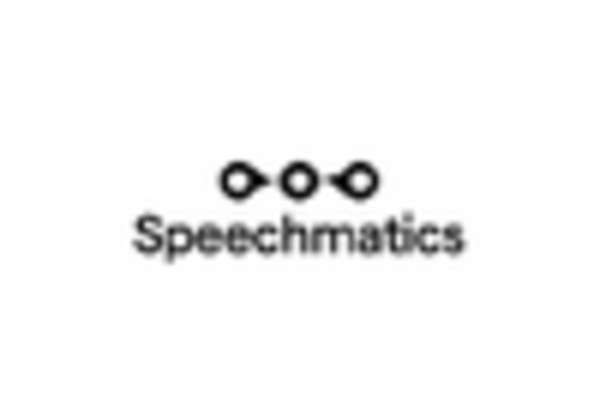Expansion of Cloud-Based Solutions
The expansion of cloud-based solutions is a transformative driver for the speech analytics market in Japan. As organizations increasingly migrate to cloud environments, the demand for scalable and flexible speech analytics solutions rises. Cloud-based platforms offer numerous advantages, including cost-effectiveness, ease of deployment, and accessibility from various locations. This shift is particularly beneficial for small and medium-sized enterprises (SMEs) that may lack the resources for on-premises solutions. The ability to leverage cloud technology allows businesses to harness advanced analytics capabilities without significant upfront investments. Consequently, the growth of cloud-based solutions is likely to play a pivotal role in the ongoing evolution of the speech analytics market.
Rising Demand for Real-Time Insights
The speech analytics market in Japan experiences a notable surge in demand for real-time insights. Organizations increasingly recognize the value of immediate data analysis to enhance decision-making processes. This trend is particularly evident in sectors such as telecommunications and customer service, where timely responses can significantly impact customer satisfaction. According to recent estimates, the market is projected to grow at a CAGR of approximately 20% over the next five years. Companies are investing in advanced speech analytics solutions to capture and analyze voice data instantaneously, thereby improving operational efficiency. This rising demand for real-time insights is a critical driver for the speech analytics market, as businesses strive to leverage data for competitive advantage.
Growing Emphasis on Multilingual Support
In Japan, the growing emphasis on multilingual support is emerging as a vital driver for the speech analytics market. As businesses expand their reach to diverse customer bases, the need for effective communication across multiple languages becomes paramount. Speech analytics solutions that offer robust multilingual capabilities enable organizations to analyze interactions in various languages, thereby enhancing customer engagement. This trend is particularly relevant in sectors such as travel and hospitality, where customer interactions often involve multiple languages. The ability to understand and analyze these interactions can lead to improved customer experiences and loyalty. Consequently, the demand for multilingual speech analytics solutions is likely to propel market growth in Japan.
Increased Focus on Operational Efficiency
The speech analytics market in Japan is significantly influenced by an increased focus on operational efficiency. Organizations are continually seeking ways to streamline processes and reduce costs, and speech analytics provides a means to achieve these objectives. By analyzing customer interactions, businesses can identify inefficiencies in service delivery and implement targeted improvements. This focus on operational efficiency is particularly pronounced in industries such as finance and healthcare, where optimizing customer interactions can lead to substantial cost savings. As companies recognize the potential of speech analytics to enhance productivity, the market is expected to witness robust growth. The drive towards operational efficiency is thus a key factor shaping the speech analytics market.
Integration of Advanced Machine Learning Techniques
The integration of advanced machine learning techniques into the speech analytics market is transforming how organizations analyze voice data. In Japan, companies are increasingly adopting machine learning algorithms to enhance the accuracy and efficiency of speech recognition systems. This technological advancement allows for more nuanced understanding of customer interactions, leading to improved service delivery. The market is witnessing a shift towards solutions that not only transcribe speech but also analyze sentiment and intent. As a result, organizations can derive actionable insights from customer conversations, which is essential for tailoring services to meet evolving consumer needs. The potential for machine learning to revolutionize data analysis positions it as a significant driver in the speech analytics market.

















